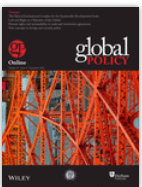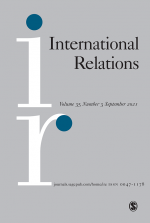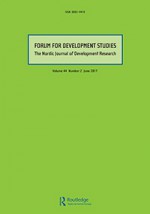Regionalisation and Civil Society. The Case of Southern Africa
This article argues that the general neglect of civil society in the majority of the literature on regionalism is above all a theoretical and methodological failure. It argues that a critical perspective on regionalism in the form of the new regionalism approach (NRA) provides a useful point of departure for better understanding civil society on at the regional level. To this approach should be added general insights from literature on civil society and the post-colonial state in Africa. The analysis shows that Southern African civil societies in Southern Africa are is not powerless, is not simply ‘national’, nor is it necessarily subject to state policies or states-led regional organisations. Rather, civil society in Southern Africa is extending its field of competence and is increasingly engaged in various forms of regionalisation activities, particularly in fields such as social economic justice and debt, trade, health, democracy and human rights, the environment, and research. But regional civil society is by no means harmonious. It encompasses several paradoxes and internal conflicts within itself, and comprises complex relations with states and donors.








